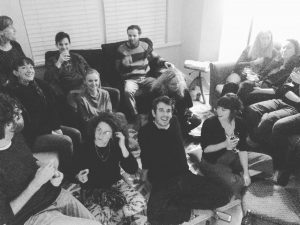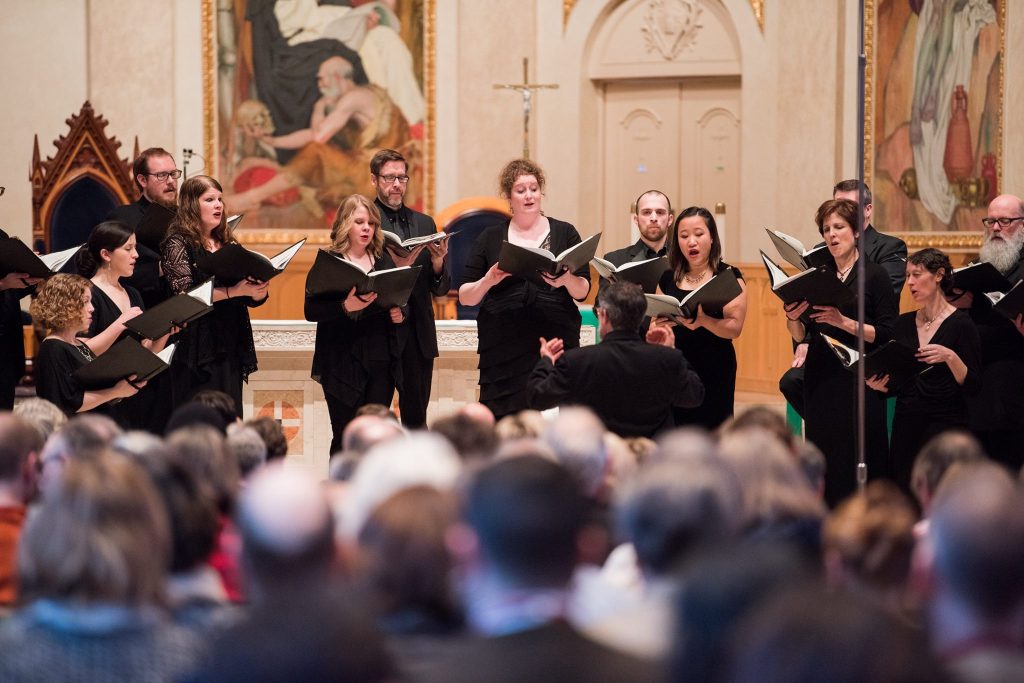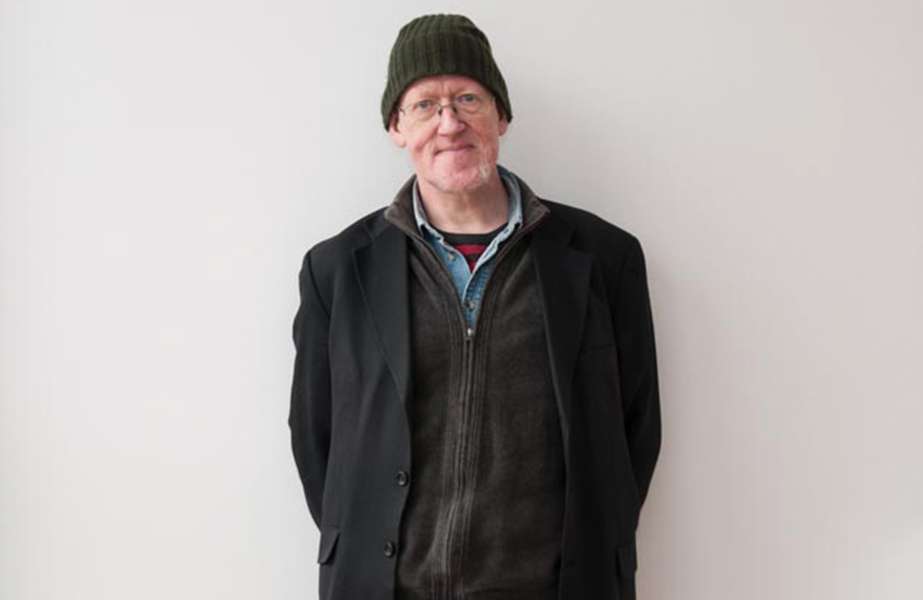On Sunday 11 April at 18:45, on BBC Radio 3, the Sunday Feature will be a programme called ‘Radio Controlled’, looking at the role of radio stations in supporting and promoting new music in Germany. This is based extensively upon the research of City lecturer and Head of Performance Ian Pace, who is interviewed at length for the feature. His work on radio forms part of a wider research project, drawing extensively upon a large amount of archival data and also many German newspapers from the period, into the origins of German (and indeed European) new music in the period from 1945 to 1951, and its earlier provenance during the Weimar Republic and to some extent through the Third Reich. The below is a short article published on Ian’s own blog, which gives an overview of the subject.
Some time ago, I figured out to myself that the infrastructure for new music in Europe had its origins in West Germany, in the sense that in that country, before anywhere else, there was a large and elaborate range of festivals, concert series, radio stations broadcasting new music, dedicated journals, newspapers with a range of sympathetic critics, and educational institutions in which modernist composers had teaching positions. Nowadays similar such infrastructures exist, and have done for some decades, in France, Belgium, the Netherlands, Austria, Italy, Spain, Finland and elsewhere, but that in Germany was essentially in place by the early 1950s. Considering how devastated the country was been after the war, with over three-quarters of buildings destroyed in many major cities, this was a remarkable development, which took place very quickly. I was fascinated to explore how and why this could have happened, exactly which types of music were most favoured at the time (not just those that today’s historical filter determines to be important). Other scholars, including historians David Monod, Toby Thacker, Elizabeth Janik and Andreas Linsenmann, had explored wider aspects of post-war German musical life and its reconstruction, but while all had considered new music, none had made this the primary focus of their study.
There have been other historical models applied loosely in this respect: the so-called Stunde null or ‘zero hour’ model, which maintains that in the wake of the devastation of war, Germany had to rebuild itself from scratch. This was equally true of music, necessitating the forging a new language, free of the tainted historical past. Another model, based upon some questionable writings of Frances Stonor Saunders and others, and widely disseminated by Richard Taruskin, maintains that new music was essentially fuelled by the United States and its intelligence agencies, beginning in the occupation era, and the most ‘abstract’ (especially atonal and pointillistic) work was supported in opposition to Soviet ideals of socialist realism, especially following the Zhdanov Decree of 1948. Thus new music was enlisted as a weapon in the cultural Cold War.
Both these models contain grains of truth, but both are also too simplistic. There were a great many continuities of works, styles and personnel in German music before and after 1945. There is also very little evidence of US support for the most radical new music in Germany after the occupation era, though there was certainly a programme in place in the late 1940s to promote US composers, who were mostly contemporary. These were however mostly the likes of Howard Hanson, Aaron Copland, Quincy Porter or Walter Piston. In the 1950s John Cage would visit Germany on several occasions, and his influence was pronounced and sustained, but there is little evidence of this being connected to any wider US government policy or Cold War strategy. The latter was mostly focused elsewhere (the German programme of the leading agency, the Congress for Cultural Freedom, was relatively small and mostly focused upon Berlin) and they promoted neo-classical music and jazz more actively than the far-out achievements of the post-war avant-garde.
What is a much more significant factor, in my view, is the concept of Nachholbedarf (‘catching up’), which was used widely immediately after 1945. This held basically that Germany had been cut off from all significant international and modernist developments in music for a period of 12 years, and so it was now necessary to ‘catch up’. The assumptions entailed here were at most only partially true, however. Whilst the protagonists of one wing of Nazi aesthetic ideology, epitomised by Alfred Rosenberg and his Kampfbund für deutsche Kultur , were implacably hostile to modernism in all the arts, others thought differently, as did their counterparts in fascist Italy. Composers such as Bartók and Stravinsky were quite widely performed in Nazi Germany at least up until the early years of the war, while the twelve-tone composer and Schoenberg student Winfried Zillig won great success for a range of operas and took a position as music director in occupied Poznań, in Poland (part of the so-called Warthegau, a region of Poland which was the site of some of the most atrocious racial policies against both Jewish people and Poles at the hands of fanatical ideologue Arthur Greiser). Much has been made of the Entartete Musik exhibition in Düsseldorf in 1938, now and also after 1945, but this was not a large-scale event and was in many ways a personal obsession of the organiser Hans Severus Ziegler. It was not attended by many prominent musicians, and did not impress Joseph Goebbels, who wrote about it in his diaries. There was plenty of international music performed throughout the Reich, though generally from friendly nations. Modern Italian music could be heard regularly, as could Spanish music after 1939, while there were tours from Romanian, Hungarian, Bulgarian musicians, even a reasonable amount of Russian music during the period of the Nazi-Soviet Pact. Japanese conductor Hidemaro Konoye travelled repeatedly to conduct the Berlin Philharmonic Orchestra, and and his score Etenraku (1930), based on a traditional gagaku melody, was played widely throughout the Third Reich and occupied territories. Cultural exchange associations between fascist nations sprung up during the period, while Peter Raabe, head of the Reichsmusikkammer after Richard Strauss’s resignation, essentially subscribed to what is now thought of as a ‘nationalistic cosmopolitics’, favourable towards multiple cultural nationalisms, in opposition to pan-national cosmopolitanism. Raabe was also sympathetic to a fair amount of modernist music. He conducted Schoenberg, Hindemith, Skryabin and others when Generalmusikdirektor in Aachen from 1918 to 1929, and was impressed when he heard Berg’s Wozzeck.
Nonetheless, the assumptions underlying the concept of Nachholbedarf were rarely questioned after 1945, and this argument was used to justify the creation of a range of specialised institutions for new music, gaining financial support from local and state authorities, and the occupying powers, towards this end. Many contemporary institutions for new music were either founded during this period or have their roots there. Furthermore, the US, France and the Soviet Union all had extensive cultural programmes, in large measure devoted to promoting culture from their own countries for a variety of motives (for the US, in part from an inferiority complex, aware of German perceptions that the US was a highly commercialised society lacking high culture; for the French, in order to supplant Germany as the central nation for European culture; for the Soviet Union, in order to promote the purportedly superior possibilities for culture under communism). The UK had a certain programme, but it was relatively modest, and primarily focused upon the press and media, seen as vital in generating a culture of political pluralism.
Furthermore, as has been shown above all in the comprehensive scholarship of Martin Thrun, there was an extremely extensive infrastructure for new music in place during the Weimar Republic. Berlin, Frankfurt, Cologne, Stuttgart, Munich and elsewhere all had extensive cultures of new music – and some of the musical aesthetics entailed a more radical break with the recent past (with widespread opposition to the values of Wagnerism and Imperial Germany prominent especially amongst the Novembergruppe of artists in Berlin) than was the case after 1945. A great many festivals and concert series came and went between 1918 and 1933, some continuing beyond 1933. Radio began in Germany in late 1923, and a few years later stations were commissioning new works of music, and composers exploiting the specific possibilities of the medium.
However, this was a time of huge economic instability, and few of the institutions proved financially stable for this reason. The same situation was naturally true after 1945, especially at the time of currency reform in 1948, in which the introduction of a new currency rendered many people’s savings essentially worthless. However, this is where the role of the radio stations, whose funding was relatively stable due to a licence fee system, is crucial. Many of the most prominent and important festivals and concert series for new music – in Munich, Darmstadt, Frankfurt, Donaueschingen, Baden-Baden, Stuttgart, Heidelberg, Cologne and Hamburg in particular – were supported by radio stations, which gave them a staying power which was rare in the 1920s.
Furthermore, it is vital to consider some of the individuals involved with these radio stations – figures such as Heinrich Strobel at Südwestfunk in Baden-Baden, who did a huge amount to support and promote contemporary French music, Herbert Eimert at the branch of Nordwestdeutscher Rundfunk in Cologne (later Westdeutscher Rundfunk), who founded the electronic music studio in Cologne and was mentor to the young Karlheinz Stockhausen, Eigel Kruttge, the first music director at the same station and later co-founder of the important new music series Musik der Zeit, Hans Heinz Stuckenschmidt at Rundfunk im amerikanischen Sektor in Berlin, who presented a range of programmes with quasi-Socratic dialogues between himself and other individuals unsympathetic to new music, Heinz Schröter at Radio Frankfurt, later Hessischer Rundfunk, who developed a major new music festival in Bad Nauheim and then Frankfurt, and was also involved in supporting the courses at Darmstadt, or Herbert Hübner, also at Nordwestdeutscher Rundfunk (later Norddeutscher Rundfunk) but at the central headquarters in Hamburg, who like others created a special late-night series devoted to new music, and from 1951 the series das neue werk, Otto-Erich Schilling at Radio Stuttgart, later Süddeutscher Rundfunk in Stuttgart, or Heinz Pringsheim at Radio Munich, later Bayerischer Rundfunk. All of these figures had a strong commitment to new music, and almost all were appointed to key positions between 1945 and 1946 (Hübner in 1947). Some had very questionable pasts: Schilling, Kruttge and Hübner had been NSDAP members (possibly also Stuckenschmidt, and also certainly his wife, singer Margot Hinnenberg-Lefèbre, though both may have been entered without their consent), as had other influential figures such as composers Wolfgang Fortner, Ernst Lothar von Knorr and Gerhard Frommel, Robert Ruthenfranz, founder of the Wittener Tage für Neue Kammermusik in 1936, Hugo Herrmann, an interim director of the Donaueschinger Musiktage and musical director of other festivals in Konstanz, Trossingen and Tübingen right after the war, pianist Eduard Erdmann, choral expert Siegfried Goslich, who worked at the radio station in Weimar, in the Soviet Zone, after 1945, and from 1948 played a major role in developing new music at Radio Bremen, or electronic music pioneer Werner Meyer-Eppler. Schilling had written an opera based on the anti-semitic propaganda film Jüd Suß and also a cantata beginning with the text ‘Wir hassen den Juden und lieben, was deutsch ist’ (‘We hate the Jews and love that which is German’). Stuckenschmidt and Eimert’s Nazi-era journalism sometimes parroted Nazi propaganda, as did that of Strobel when writing for the Nazi occupation paper Pariser Zeitung, though in Strobel’s case it should be borne in mind that he was married to a Jewish woman and there is good evidence that he made whatever compromises were necessary to protect her.
But in almost all cases the individuals involved with radio found that the occupying powers found them acceptable and were happy to allow them to take up the positions they did. Kruttge was an exception, and removed from his position at an early stage for a period. Why this was depends on individual cases: in some cases there was simply not the time for the military authorities to investigate the fine details of some people’s journalism and employment of Nazi tropes and rhetoric, and this became less and less of a concern as denazification was scaled down and handed over to German authorities, before being brought to an end entirely. In the case of Strobel, who been an opponent of German romanticism and indeed the expressionism of Schoenberg back in the 1920s, the French authorities had plenty of good reason to believe in his Francophile tendencies, notwithstanding his wartime journalism. As such he could be counted upon to support their own cultural agenda, a prediction which proved wholly accurate.
Without the work of these individuals at radio stations, I do not believe that not only avant-garde German composers such as Karlheinz Stockhausen (and arguably less radical composers such as Hans Werner Henze or Giselher Klebe), but also those from elsewhere including Pierre Boulez, Luigi Nono, Bruno Maderna, and indeed John Cage, all of whom were widely performed in West Germany, would have gained the reputation and profile that they did, at least for a period. And their work paved the way for subsequent generations.
‘New music’ is a concept whose roots are in an essay ‘Neue Musik’ published by critic Paul Bekker in 1919, stimulating a wide range of responses through the 1920s), in the sense of a separate realm of musical activity from more ‘mainstream’ classical music, with financial support from sources other than ticket sales and private sponsorship. It is fundamentally a phenomenon borne out of particular historical circumstances in Germany after crushing defeat in 1918 and 1945. This is not the whole picture, for sure, and one should not neglect other parallel developments elsewhere – for example the Festival internazionale di musica contemporanea founded in Venice in 1932 (thus in the midst of the Fascist era), which continues to the present day, or other developments in France, Austria, the UK and elsewhere. But the scale of such a thing was greatest in Germany. What then becomes a difficult question for all of those (including myself) committed to and involved with such a scene, is what is the basis for its continuation, and financial support, now that historical conditions have changed, and the legitimising arguments for the associated infrastructure no longer have the same cogency.














 e collaboration with the Seattle Symphony that highlighted the roots of Sergei Rachmaninov’s orchestral music in the sound world of Russian liturgical chant. For three successive days, Dr Lingas led the singers both in pre-concert lecture-demonstrations of Russian sacred music and in two short vocal works sung immediately before splendid performances of Rachmaninov’s First Piano Concerto and Second Symphony directed by SSO Principal Guest Conductor Thomas Dausgaard. The concerts were hailed by audiences and critics, with the Seattle Times describing the participation of Cappella Romana as ‘highly atmospheric’ and ‘an innovative and thought-provoking entry into Rachmaninov’s musical world’. Full reviews are available here:
e collaboration with the Seattle Symphony that highlighted the roots of Sergei Rachmaninov’s orchestral music in the sound world of Russian liturgical chant. For three successive days, Dr Lingas led the singers both in pre-concert lecture-demonstrations of Russian sacred music and in two short vocal works sung immediately before splendid performances of Rachmaninov’s First Piano Concerto and Second Symphony directed by SSO Principal Guest Conductor Thomas Dausgaard. The concerts were hailed by audiences and critics, with the Seattle Times describing the participation of Cappella Romana as ‘highly atmospheric’ and ‘an innovative and thought-provoking entry into Rachmaninov’s musical world’. Full reviews are available here:


